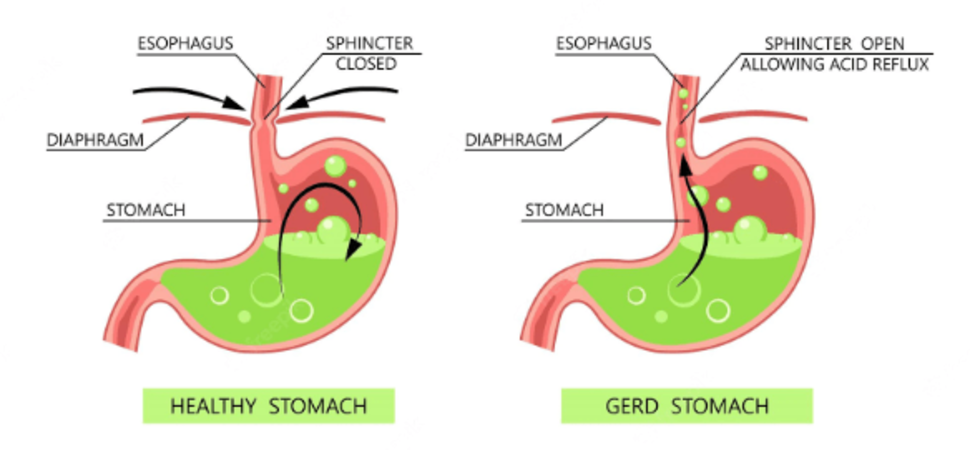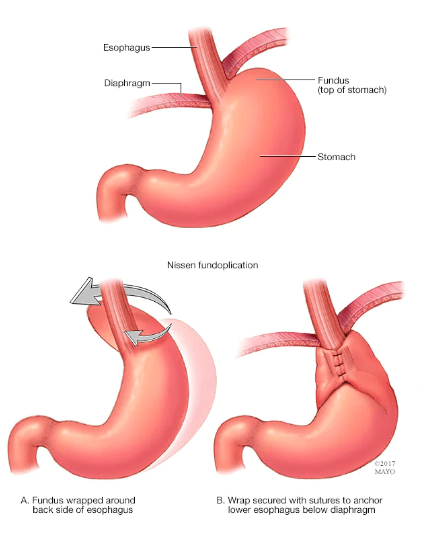
Can GERD Be Cured?
What is GERD?
Gastroesophageal reflux disease, also known as chronic acid reflux, is a disorder in which the oesophagus, the tube that connects your throat to your stomach, frequently becomes infected with acid-containing stomach contents.
The lower esophageal sphincter, a valve at the end of the oesophagus, malfunctions when food enters the stomach, causing acid reflux. You then experience acid backwash, which causes a sour taste in your mouth and throat after it travels back up through your oesophagus.
Nearly everyone experiences acid reflux at some point in their lives. It's completely natural to experience heartburn and acid reflux occasionally. However, if you experience acid reflux or heartburn more than twice per week over a period of several weeks, regularly take antacids and heartburn medications, and still experience recurrent symptoms, you may have GERD. Your healthcare provider needs to handle your GERD. Not only to get rid of your symptoms, but also because GERD might trigger more severe issues.
What are the symptoms of GERD?
Acid regurgitation and recurrent heartburn are the main symptoms. GERD can occur in some persons without heartburn. Instead, they feel chest pain, morning hoarseness, or difficulty swallowing. You can feel as though you are choking, like you have food caught in your neck, or that your throat is tight. Dry coughing and foul breath are other GERD side effects.
How can GERD be treated?
GERD can be treated in a variety of ways. It's possible that you'll need to test a few before settling on the finest option for you.
- Lifestyle modifications: Modifying your way of living can help lessen its symptoms. This includes giving up smoking, dropping weight if you're overweight, and staying away from coffee and alcohol.
- Medication: It can be treated with a wide range of drugs. Antacids and proton pump inhibitors (PPIs) like Omeprazole and H2 blockers are examples of these.
However, a long term use of PPIs has been linked to gastric cancer.
GERD Surgery
You may believe that GERD sufferers can easily take drugs like "the purple pill" to get relief from their symptoms and lower their risk of developing esophageal cancer. Unfortunately, certain medications actually increase the risk for esophageal cancer even though they are quite effective at managing GERD symptoms. Antacids, H2 blockers, and proton pump inhibitors can reduce or stop the production of stomach acid, but they cannot stop stomach acid from flowing backward into the oesophagus. These reflux-related contents still contain bile, a base that can harm the lining of the oesophagus even in the absence of acid.
The alkalinity of the stomach contents is actually elevated as a result of the absence of the acid that previously neutralised the bile, making them much more dangerous to the oesophagus than before.
Patients were instructed to use the first proton pump inhibitor for just six weeks out of the year. This drug was not meant to be taken continuously for long periods of time. Esophageal adenocarcinoma rates have climbed more than seven times over, at a steeper rate than before, throughout the past three decades when many patients have been using proton pump inhibitors chronically to manage GERD. This number is quite concerning and has to be taken carefully.
Patients with GERD might benefit more from a less invasive surgery than from continuously using proton pump inhibitors or antacids. The technique is referred to as Nissen fundoplication. The upper portion of the stomach is wrapped around the lower oesophagus during this technique. By strengthening the lower esophageal sphincter, acid reflux in the oesophagus is less likely as a result.

